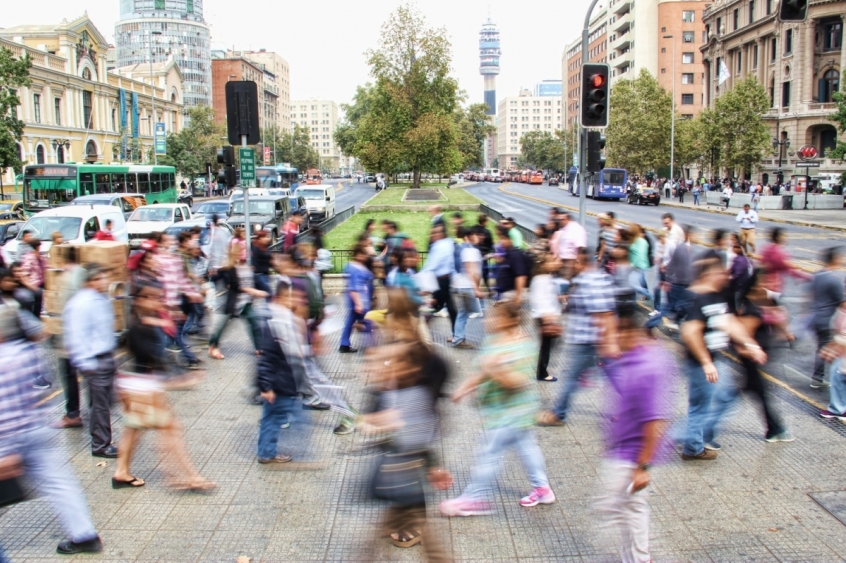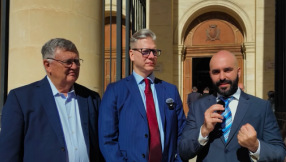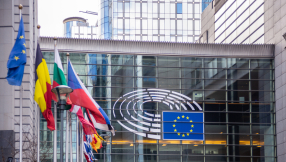
Racism is a haunting spectre yet to be expelled from our culture. It is an issue every generation must address, and a conversation that continues to play out on the nightly news.
Letters to a Birmingham Jail is a collection of writing that speaks to the perennial issue of racism in America. Pastor Bryan Loritts compiled this collection of letters from respected theologians, referencing the timeless letter from Dr. Martin Luther King Junior: Letters from a Birmingham Jail.
Dr King's original work was written from his jail cell in 1963, in response to a letter he received from a group of clergymen. The clergymen urged him to be patient and not take drastic action to further the cause of civil rights. The book is his response and reveals the heart and soul of one of the key figures of the civil rights movement in America.
Closed eyes
Bryan Loritts recounts a conversation with a friend on the subway. His friend would close his eyes mid-conversation every time the train was loading:
"His mother had raised him, that if he was ever in a situation where there were no seats and women were standing, the chivalrous thing to do would be to give up his seat. He didn't want to do that on this day; so he reasoned that if he would just close his eyes and not see women standing, he could continue his comfortable life.
Dr. King felt the clergymen exuded a strong sense of indifference to the social ills of racism, and thus did not feel compelled by it. He wrote that they needed to be moved to action with a greater urgency to ensure that their fellow brothers and sisters had an unfettered quality of life.
Consider this challenge: Have we, as Christians, been closing our eyes to social inequity and the disparities before us? How many of us have closed our eyes to ease our consciences, in order to have a certain measure of convenience and comfort? How many of us have hoped for 'time' to do the healing or fixing?
In his letter Dr. King makes a salient point:
"Human progress never rolls in on the heels of inevitability, it comes through tireless efforts of men willing to be co-workers with God and without this hard work, time itself becomes an ally of the forces of social stagnation."
We are called to more
We are not called to passive indifference, but to an active faith; to engage in the world preaching the gospel; but also helping people who are 'the least of these'. As Loritts notes: "If our vertical reconciliation to God requires intentionality, then our horizontal reconciliation necessitates the same intentionality."
We need to be intentional about mending the issues in this world caused by the fall and see it not as a 'social gospel', but a part of preaching and living the full counsel of God's word.
In Luke's Gospel a Lawyer asks Jesus, 'who is my neighbor?' Jesus responds with a parable that cuts right to the heart of the issue.
A traveler is rudely handled by robbers and left for dead. Three people pass him by: the Levite and the priest walk by and offer no assistance, but the person least expected to help does — a Samaritan.
He not only offers help, but does so at a cost, at an inconvenience (he stopped his journey to help). The lawyer was challenged to do so, just like this Samaritan - to show active help and display a faith that gets involved in the life of someone needing help, for this is the call of the Gospel.
James writes about the kind of faith God expects:
"What good is it, my brothers, if someone says he has faith but does not have works? Can that faith save him? If a brother or sister is poorly clothed and lacking in daily food, and one of you says to them, 'Go in peace, be warmed and filled,' without giving them the things needed for the body, what good is that? So also faith by itself, if it does not have works, is dead.'"
Let us not have our eyes closed with passive indifference, but open with active love and compassion as the Gospel moves us to model, "Religion that is pure and undefiled before God, the Father, is this: to visit orphans and widows in their affliction, and to keep oneself unstained from the world" (James chapter 1, verse 27).
Courtesy of Press Service International













